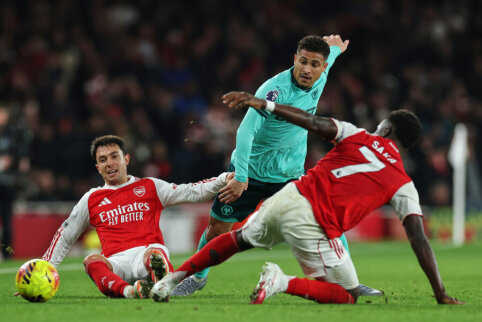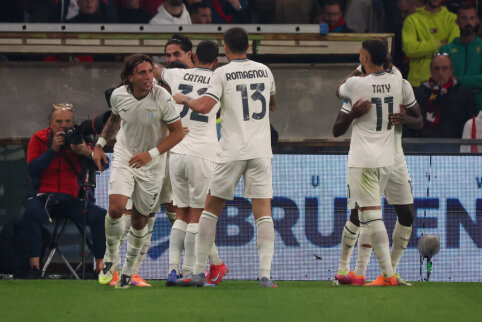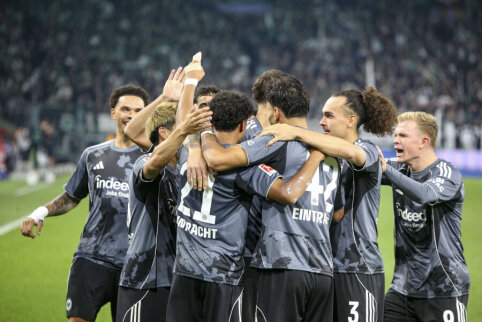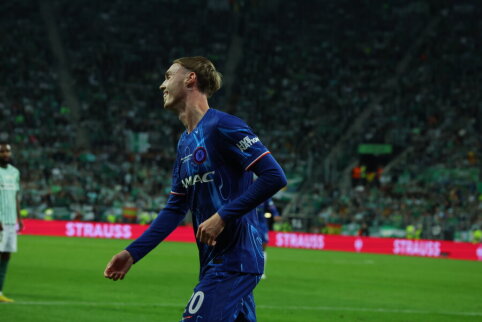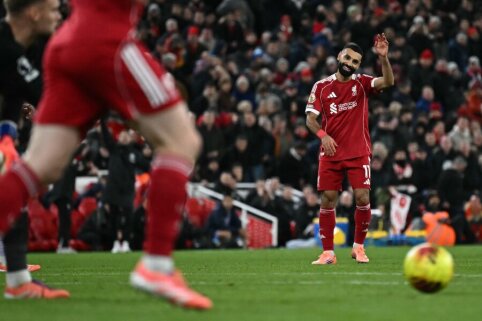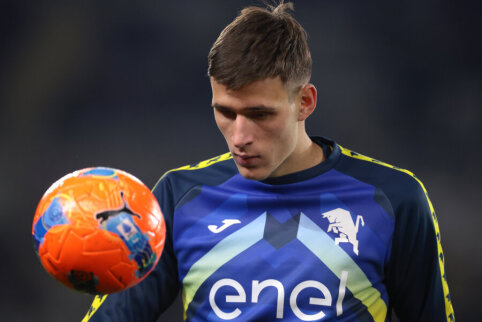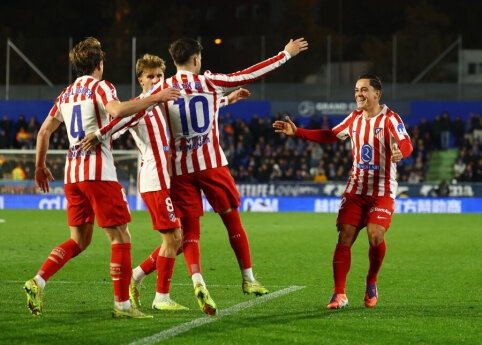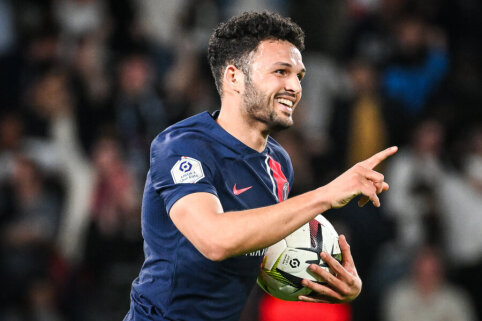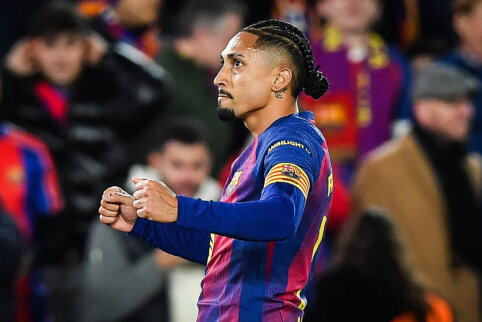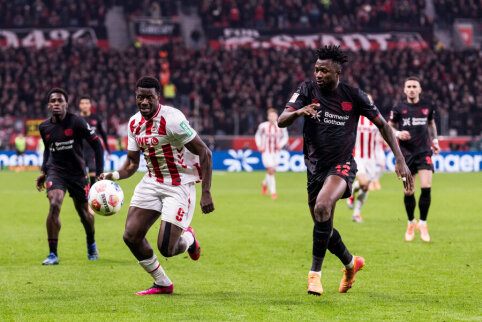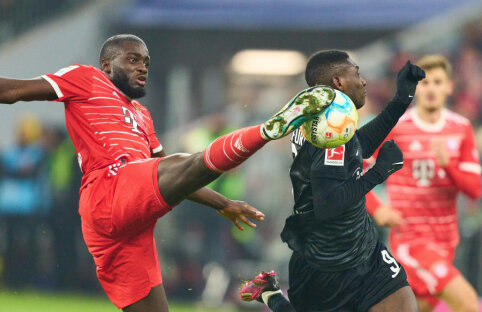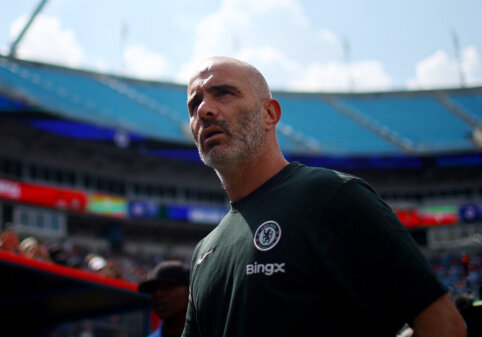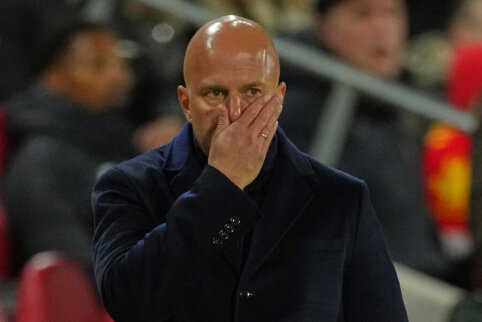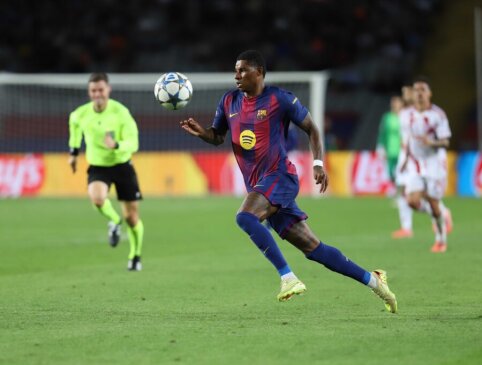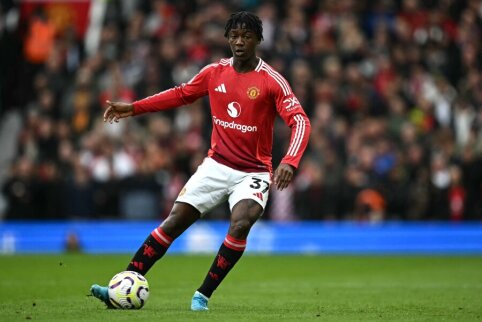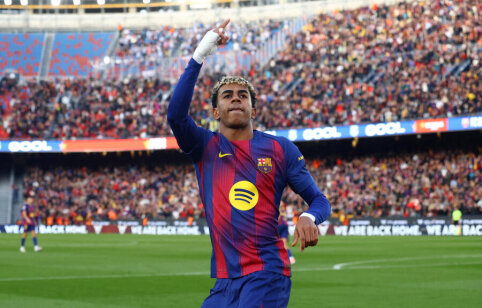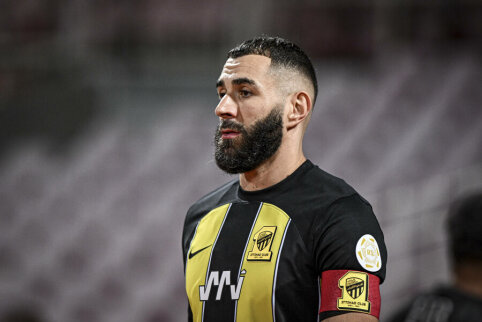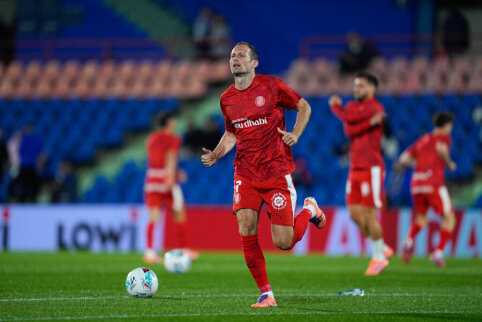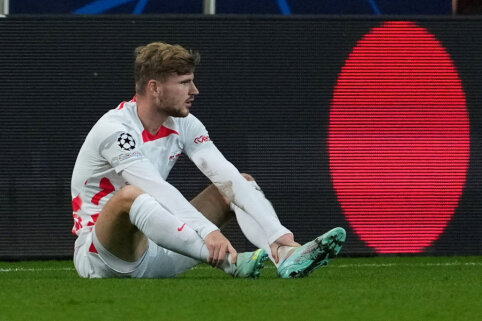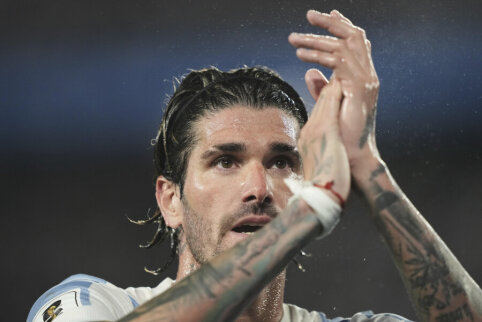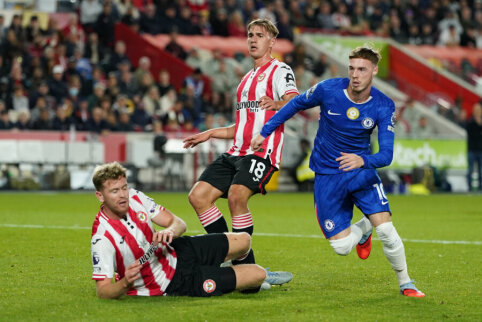 © EuroFootball.com
© EuroFootball.com
One of the most incredible stories in football history is the journey of "Nottingham Forest" from the second lowest division in England to triumph in the European Cup. Founded in 1865, the club remains the only club to have won the continental championship more times than their domestic league, and last year also became the only club to reach such heights and then be relegated to the third division.
They didn't win the European Cup with superstars, they won it with underdogs, of which the more famous were only John Robertson, Trevor Francis, and coach Brian Clough. In the first part of the article, we saw the extraordinary journey of the team towards the peak of European football, and in the second part, we will look further at the people who turned the dream into reality.
Lee Bowyer, an underrated hero in defense
Every great team has an underrated hero, and this role in the "Forest" club was taken by Lee Bowyer. After entering the top league, he never had a permanent place in the main lineup and fought with Archie Gemmill for it, but was always ready when needed, playing from the start of the 1979 and 1980 European Cup finals.
Bowyer also scored perhaps the most important goal in "Forest" history - the winning goal against "Köln" in the 1979 semifinal second leg.
"My biggest appreciation for that goal came when I returned to the East Midlands airport," Bowyer recalled - "I was in a long line to pay for parking in the parking lot and Viv Anderson shouted 'Let him through!' and pulled everyone out of the way so I could get to the front of the line."
Kenny Burns, the "bandit" who became Player of the Year
"Forget it, I don't want that scumbag Kenny Burns to tarnish my club. I don't buy bandits." This was Clough's reaction when Taylor suggested in the summer of 1977 that they should buy Kenny Burns from "Birmingham". The Glasgow-born footballer had a reputation as an alcoholic and gambler, but Taylor sensed that Burns would fit perfectly next to Lloyd in the "Forest" defense, and he was right.
Taylor followed Burns after training to his home, to the pub, and to the local dog racing track. "He was pure gold," Taylor said - "He never fought and never got nervous." Clough eventually relented, and after taking Burns to a pea harvester show, bought him for £15,000.
"Kenneth," as Clough called him, helped "Forest" win the league, and in 1978 was named Player of the Year. The player who moved to the central defender position played tough, never afraid to fight for the ball, and ran with a constant frown on his face.
Very few forwards managed to outsmart him. In the 1980 Champions Cup final against "Hamburger," he played outstandingly and gave Kevin Keegan so little space that the "Golden Ball" winner had to find space in the middle of the field.
John McGovern, the "shy and modest" talisman
In 1965, Clough and Taylor noticed 15-year-old John McGovern playing in trial matches. Both strategists knew they had found something special, but McGovern was still in school, so they had to ask the director to allow the boy to become a footballer.
Clough's wish was granted, and McGovern made his debut in Clough's "Hartlepool" team at just 16. Later, McGovern followed Clough to "Derby," then to "Leeds," and finally to "Forest." No one played more matches than Clough. McGovern was the coach's envoy on the field, his captain and leader, the man Clough could trust more than anyone else.
But sometimes only Clough appreciated the Scot's skill. "I will never forget the director who asked me why I signed a crooked, awkward, and mediocre wimp," Clough recalled.
A few weeks after his arrival at "Forest," Clough called McGovern from "Leeds," made him the captain, and made him play as a defensive midfielder in the middle of the field, where he could strengthen everything. Even to this day, very few midfielders managed to lift the European Cup more times as captain than McGovern did.
Garry Birtles, the champion floor fitter
In the autumn of 1974, Garry Birtles signed a petition asking "Forest" to invite Clough to the head coach's position. At the time, he was an 18-year-old floor fitter who watched "Forest" and played amateur football on weekends. After a couple of years, Clough acquired Birtles from "Long Eaton" for £2,000.
Although he was Clough's squash partner, during the next two seasons Birtles only played once in the main team. However, in the summer of 1978, "Forest" sold one of the most productive team players, Peter Withe, to "Newcastle." It was thought that Clough was preparing to replace him with a more famous player before appearing in Europe, but instead he decided to give Birtles a chance.
It was an inspiring decision. Athletic and hard-working forward with a goal-scoring instinct, Birtles finished his first full season at the club as the top scorer and winner of the European Champions Cup. Scoring in the famous "Forest" victory in the first round against "Liverpool," he later excelled in all stages on the way to the final.
In the next year against "Hamburger," Birtles took on a very unusual role. Due to an injury to Trevor Francis, he played alone up front. "Playing alone up front meant he had to work from the back," Clough said - "I had never seen a player run around the field as much as Birtles did that night."
Trevor Francis, the forward who had almost everything
Trevor Francis had immense talent and had acquired a reputation as a productive forward at "Birmingham" before his 17th birthday. Nine years later, Clough acquired the "supervaikis" for a record £1 million.
Francis had everything - speed, technique, athleticism, and the ability to be in the right place at the right time. But Clough and Taylor were never completely satisfied with the player they acquired, noticing one eye-catching weakness: his ability to head the ball.
"Since the day we bought him, we tried to improve that," Taylor said. It clearly worked, as after three and a half months, Francis rose to a long-distance shot and scored the winning goal against "Malmö" in the 1979 final. It was his first European match representing "Forest," as he had not yet played for the team until then.
A year later, Francis became "Forest's" top scorer. He was in top form - in the quarterfinals against Berlin's "Dinamo," Francis scored two goals and created one, then he stood out in the match against "Ajax." The player was getting ready to play in his second consecutive European Champions Cup final, but with just four games left until the end of the season, he tore his Achilles tendon in the match against "Crystal Palace."
Clough refused to let Francis travel with the team, so he had the strange experience of being on forced leave in France watching "Forest" defend the European Champions title on television. Just half a year after his acquisition, "Forest" regained their million by selling Francis to "Manchester City".
Despite the success the player helped the club achieve, the former forward Clough still had doubts about Francis: "There's a thought that if Trevor had a bit of Denis Law's temperament, more aggression in his character, he could have become one of the true legends of the game."
Martin O'Neill, the underestimated right-back
From the six years spent at the club, Martin O'Neill remembered being praised by Clough only three times. Instead of that, Clough constantly berated him, saying, "Even though you are in the A team, as a footballer you are too dull."
But it would be difficult to deny that O'Neill did not do any good: he played 250 times under Clough for "Forest" and won plenty of titles. The right-back scored many goals and was second in scoring in the team during the 1978/79 season. An injury prevented him from participating in the final of 1979, but the player still received a gold medal in Madrid a year later.
The Northern Ireland national team player often got annoyed that most "Forest" attacks went through Robertson's left side. Clough explained why this was the case: "What's the point of giving you the ball when a genius is playing on the other side?"
"I never felt needed at the "Forest" club," O'Neill recalled. - "Playing for Brian and Pete, I gave my all... If they had encouraged me more, they could have gotten 20% more from me." In 1981, O'Neill moved to "Norwich," where, in his opinion, he finally became a player.
Many years later, O'Neill grew into an excellent coach and, assisted by his former team-mate John Robertson, led "Wycombe" and "Leicester." It was expected that they would return to the "City Ground" as coaches, and this almost happened in 1993 and 1997, but the club failed to attract the duo and had to watch how well they were doing at Glasgow's "Celtic" club. After five years of glory in Scotland, the former defenders moved to work with Birmingham's "Aston Villa" and managed to turn the team from bottom of the league into a tough nut to crack in just one summer.
While at "Leicester," with whom he not only made it to the English "Premier" League but also kept the team in the top of the league table for four seasons, O'Neill received belated praise from his former coach Clough: "But anyone who manages to do more than shake above "Leicester" is a genius."
Tony Woodcock, the forward who proved Clough wrong
When Clough arrived at the "City Ground," it seemed that there was no future in Tony Woodcock's career. He was somewhat promising but not much more. Initially, he did not impress Clough, and the coach loaned him to "Doncaster" and "Lincoln".
"I enjoyed the time when I was on loan; it was really fun," Woodcock recalled. "I had good two months; many other clubs showed interest, so Cloughie brought me back and said: 'All these clubs are asking about you. But I'd rather give you a chance to prove me wrong.'"
Soon he realized he was wrong. Woodcock's partnership with Peter Withe brought goals that helped them rise in '77 and '78 and win the league title the following year. A year later, Woodcock was already in the starting lineup for the European Champions Cup final and received a medal.
But after six months, playing 180 games and scoring 62 goals, the former England international Woodcock left "Forest" and joined the Bundesliga club "Köln." Although he enjoyed playing in Germany, he did not want to leave desperately. "I wanted a certain agreement, but "Forest" said they would not pay me that much. But when they said okay, I had already given my word to sign a contract with "Köln." "
John Robertson, the hero turned "Scottish slob"
When "Forest" forced everyone in Europe to give up, Clough's message to the team was unexpectedly short. As he used to say, "Just give the ball to Robbo," or a little less affectionately, "Give the ball to the fat man."
The slender left-back was the main force in "Forest" attacking during the club's incredible success. He could play with both feet, be on the left edge of the defense line, and both start attacks and be the main source of cross-field passes.
"Every left-back thought he could catch him, and although they could bypass him, it didn't matter," Lloyd recalled - "You could see it over and over again. His big fat backside went right, and the left-back and 30,000 spectators followed him. But then, suddenly, John stepped right, found a meter of free space, and passed the ball. I don't think he knew what a great player he was. He did not fathom the impact he had on the entire team. He gave everyone confidence in his abilities."
In 1998, Robertson was voted the best player of all time by Nottingham "Forest" fans. After Clough and Taylor, he was the man who, more than anyone else, managed to fulfill his dreams. In 1979, he created the goal that determined the victory in the European Champions Cup, and in 1980, by ignoring the shouts of both coaches from the substitute bench to return to defense, he scored the winning goal in the title-winning match.
When Clough arrived, Robertson, who physically looked like a man who could play darts for Scotland rather than football, was on the list of players for sale. "He could have been a stadium keeper," Clough remembered - "He was in terrible shape, he was overweight, ate too many crisps, smoked too many cigarettes, and looked unkempt... But in this Scottish slop, there were some indescribable qualities that convinced me he could be given a chance."
Even Taylor, who usually left the bar for his partner, was so angry that he briefly and sharply shocked the Scot by telling him: "You can remove "professional footballer" from your passport and put "living in a frying pan." Such rough sports psychology worked. Robertson created and scored goals and played more games than any other player during Forest's glory years.
Clough remembered: "He was a very unattractive young man. Often sitting next to him, I felt strange because compared to this fat, short guy, I was like Errol Flynn (handsome and famous Hollywood actor from the 40s and 50s - ed.) But give him the ball, a meter of grass, and he was an artist, our game Picasso."
As ironic as it may be after all that criticism, which the "Scottish slob" received from the coaching duo, after Taylor transferred to "Derby," they clashed with Clough over Robertson's signature because Taylor called the player without notifying his former colleague at the "Forest" club. Eventually, Taylor managed to persuade the left-back to move to his new team, but only after a court order.
However, shortly after the transfer to "Derby," Robertson got injured, and after healing his injury, he no longer demonstrated the kind of game he showed at Nottingham, and after a short return to "Forest," he was just a shadow of his former self and ended his career in lower league clubs. Robertson has remained in football to this day - he worked and still works as an assistant in teams led by Martin O'Neill.
[link="http://www.eurofootball.com/index.php?page=articles&id=7571"]First part of the article[/link]
